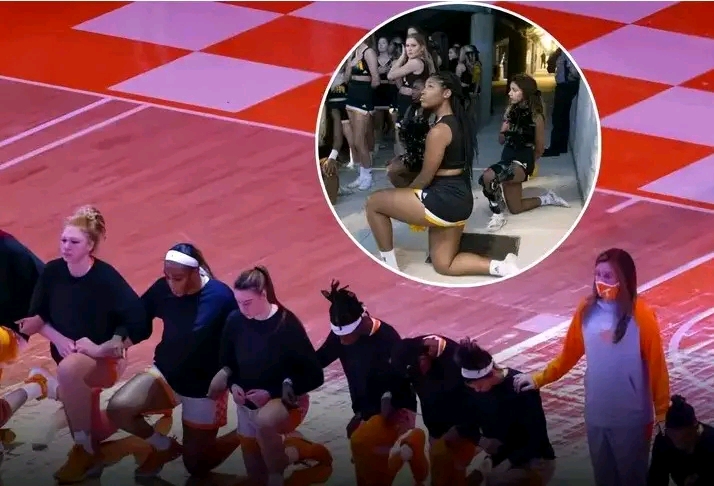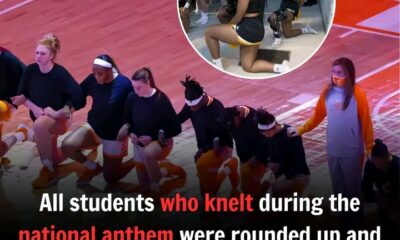CELEBRITY
KNEELING: After the University of Texas, all students who knelt during the national anthem were rounded up and REMOVED FROM SCHOLARSHIPS

The hypothetical scenario in which students at the University of Texas are rounded up and removed from scholarships for kneeling during the national anthem would be an explosive and controversial event, raising significant concerns about free speech, civil rights, and the role of protest in American society. Such a drastic action would likely provoke widespread outrage, legal battles, and national debate, highlighting the ongoing tensions surrounding patriotism, protest, and institutional authority.
Kneeling during the national anthem has become a powerful symbol of protest against racial injustice and inequality, particularly since it was popularized by NFL player Colin Kaepernick in 2016. For many, this act of kneeling is a peaceful form of expression, intended to draw attention to systemic issues within society. However, it has also been met with fierce opposition from those who view it as disrespectful to the flag, the military, and the nation as a whole.
If a university, particularly one as prominent as the University of Texas, were to take the step of revoking scholarships from students who engaged in this form of protest, it would likely be seen as a severe and punitive response. Such an action would raise serious questions about the institution’s commitment to free speech and the protection of students’ rights. The First Amendment of the U.S. Constitution guarantees the right to free speech, and while public universities are bound by these protections, the line between permissible protest and actions that warrant disciplinary measures can be a contentious one.
The removal of scholarships for kneeling would almost certainly be challenged in court, with students and civil rights organizations arguing that the university’s actions violate their constitutional rights. Legal experts would likely debate whether the university’s actions were an overreach, and whether they could be justified under any existing legal frameworks. The case could become a landmark legal battle, potentially setting new precedents for how protests are treated on college campuses across the country.
Public reaction to such an event would be deeply divided. Supporters of the university’s actions might argue that scholarships are privileges that come with certain expectations of behavior, and that students who engage in actions perceived as unpatriotic do not deserve to benefit from publicly funded scholarships. They might view the kneeling as an affront to the values the university stands for, and believe that the institution is within its rights to enforce consequences.
On the other hand, opponents would argue that the university’s actions are a gross violation of students’ rights to free speech and peaceful protest. They would contend that kneeling during the anthem is a legitimate form of expression, and that punishing students for their beliefs is not only unjust but also contrary to the principles of academic freedom and open discourse that universities are supposed to uphold.
The broader societal implications of such an event would be significant. It would likely fuel ongoing debates about the limits of free speech, the role of protest in American life, and the ways in which institutions of higher learning navigate issues of political and social controversy. The incident could also spark further protests, both on the University of Texas campus and nationwide, as students and activists rally in support of those who were penalized.
In conclusion, if the University of Texas were to revoke scholarships from students who knelt during the national anthem, it would represent a dramatic escalation in the conflict between institutional authority and individual rights. The repercussions would be felt far beyond the university itself, potentially reshaping the landscape of student activism, legal interpretations of free speech, and the ongoing national conversation about patriotism and protest.














